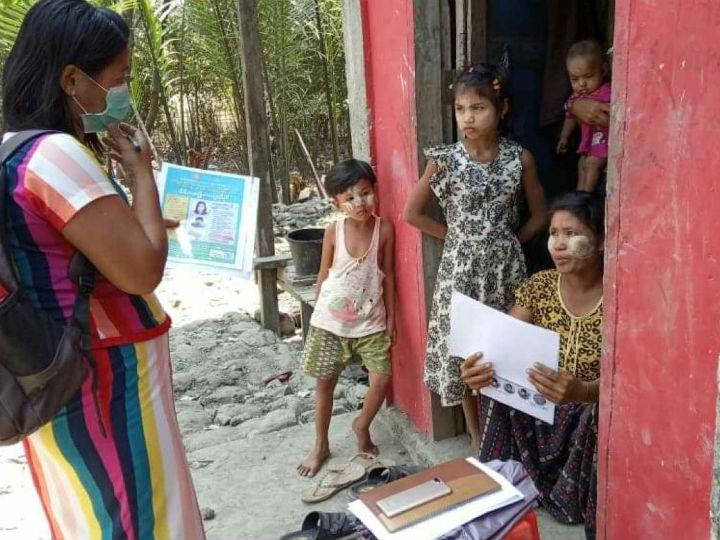by Mahmoud Jabari*
-Ideals of a "global society" and a "great reset" will be tested over the coming months.
-The post-pandemic era will see economic disruption, with many countries unable to deploy fiscal stimulus.
-Global institutions must lead on cushioning the blow for the most vulnerable.
The World Economic Forum has recently launched the Great Reset. It will be the theme of its 2021 Annual Meeting in Davos. It emphasizes, among other things, the importance of “smart global cooperation” that is well-positioned to address the challenges of the next 50 years by all stakeholders within a global society.
In light of that, it is imperative to ask how can traditional stakeholders of a “global society” ensure that the struggles and challenges of the most vulnerable groups are represented and addressed?
It will most likely take years to return to some level of relevant pre-crisis normality. Countries and societies, rich and poor, will experience unprecedented costs in the form of, among other things, job and income losses, bankruptcies, non-performing loans, supply-chain disruptions, financial insecurity, health concerns and mental stress. The OECD is warning of “deeper [economic] scars than any peacetime recession in the past 100 years”.
Racial and social inequalities, economic disparities and disproportionate government and community preparedness have more forcefully come to the surface in the course of responding to COVID-19.
Recent protests in the US against racism and police brutality are putting a magnifying glass up to inequality that runs deep into social, economic and political systems that govern peoples’ lives, even in an advanced economy and a democracy like the US. The worldwide response to these protests is a testimony to the fact that these are global problems. We have an opportunity to fix these problems. COVID-19 is painfully reminding us that we are an interconnected global society, but unless we act together, the effects will be lasting and felt for generations to come.
In a post-pandemic era, many countries will be subject to prolonged struggles across communities, sectors and regions. A McKinsey Global Institute report estimates that in the next three years, the disparity in lost global GDP between economies with partial virus-spread control and those with “near-zero virus” situations may reach $15 trillion.
The World Bank has warned that the virus could push between 40 and 60 million people into extreme poverty this year, with sub-Saharan Africa and south Asia expected to be the hardest hit.
Countries with limited or no capacity to deploy fiscal tools such as tax incentives, grants and emergency loans will struggle to survive an economic collapse, especially if a second COVID-19 wave hits. For example, African countries have been at the lower end in terms of fiscal stimulus (at 1 and 1.5% of GDP) compared to other countries around the world. This will keep them short from returning to pre-crisis levels and will affect their chances of avoiding an economic contraction. As some countries move forward past the crisis, if we want global systems to recover, countries that are advancing must pull the struggling ones up alongside them for the benefit of all.
Furthermore, long before COVID-19 has hit, trust in governments and international organizations have been on the decline, and global political polarization has been on the rise.
COVID-19 has put businesses, governments and communities under an amplified “stress test” where a lack of global economic coordination, sympathy and support in a “global society of stakeholders” will be costly to everyone. In light of that, the Bretton Woods Institutions have both an opportunity to seize and an obligation to undertake, which is to restore their global role by acting as trusted stewards of inclusive economic policies.
The call by IMF and World Bank for creditors to suspend debt payments from IDA countries should be extended to other regions. In the short- to mid-term, the World Bank and IMF should mobilize and scale up emergency financing facilities to support the most critical economic sectors in the most vulnerable countries. In the long term, they need to champion and help countries design new economic systems that are more resilient, equitable and sustainable.
Humanity has no shortage of creativity, imagination and problem-solving ability. What we need more of is responsible leadership that inspires collaboration, sympathy and vision on local and global levels for humanity to land new and safe heights. We have no alternative to thinking and acting as a global community and therefore must strive to leave no one behind. It is time to reach out and include non-traditional voices in a global society of stakeholders to ensure that future solutions are relevant, effective and representative to all and not just the few.
*Community Specialist, Africa and the Middle East, World Economic Forum
**first published in: www.weforum.org




 By: N. Peter Kramer
By: N. Peter Kramer
